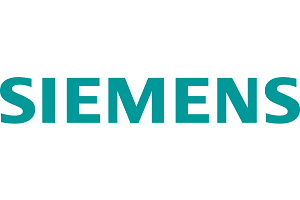Siemens provides automation, building technology for Middle East’s vertical farm

Siemens has provided automation and building technology to the recently opened Bustanica vertical farm in Dubai. The $40 million (€36.42 million) facility is owned by Emirates Crop One, a joint venture between Emirates Flight Catering and Crop One Holdings Inc.
Technology from the Siemens Xcelerator portfolio has been integrated throughout the farm to ensure efficient production, reduce waste, and increase the farm’s overall sustainability. Siemens Smart Infrastructure’s building management system Desigo CC controls and monitors air-conditioning and ventilation, while Siemens Digital Industries’ SIMATIC automation and control systems deliver optimal growing conditions by controlling the lights and CO₂ levels required by the plants. SINAMIC series variable frequency drives along with automation stations make sure plants receive the right nutrients and water supply. SENTRON electrical components distribute power to the grow racks.
Siemens SCALANCE components create a communication network connecting these automation technologies while protecting the facility with Siemens cyber security solutions. Siemens Xcelerator is an open digital business platform that enables customers to accelerate their digital transformation easier, faster, and at scale. At its core is a curated portfolio of connected hardware and software, an ecosystem of partners, and an extensive marketplace.
Bustanica’s system is designed to circulate water to the crops to maximise water usage efficiency. When the water vaporises, it’s recovered and recycled into the system, saving 250 million liters of water per year compared to traditional outdoor farming for the same output. The 330,000 sq. ft. facility requires 95% less water than conventional agriculture, and provides an output of 1 million kgs of produce per year that are free of pesticides, herbicides and chemicals.
“We are proud to work with Emirates Crop One on a project that will transform agriculture and will allow people to eat fresher foods while reducing water consumption and transportation costs,” says Franco Atassi, CEO of Siemens Smart Infrastructure in the Middle East. “Bustanica uses smart infrastructure in its vertical farm that will allow it to sustainably scale operations and become a model for other vertical farms around the world. The infrastructure installed today will allow for the use of machine learning and artificial intelligence in future.”
Bustanica’s produce will initially be provided to airline passengers flying to and from Dubai. The company plans to sell leafy greens and other produce in local supermarkets, and because the greens are grown in a controlled environment, consumers can eat them straight out of the bag.
“Emirates Flight Catering constantly invests in the latest technologies to delight customers, optimise operations, and minimise our environmental footprint. Bustanica helps secure our supply chain, and ensures our customers can enjoy locally sourced, nutritious produce,” says Kieran Dowd, general manager of Emirates Crop One and vice president, sourcing solutions, at Emirates Flight Catering. “The technology provided by Siemens enables the facility to bring food production closer to consumers, making our operations more efficient and sustainable.”
Vertical farming facilities are up to 100 times more productive than outdoor farms because they consume 95% less water and don’t require any use of pesticides or chemicals. This method allows farmers to control light, temperature, water, and carbon dioxide levels maximising output and efficiency so they can grow crops year-round and near consumers. The industry is expanding to mitigate challenges like food insecurity, limited arable land, labor shortages and to meet growing demand for pesticide-free produce.
For further information on Siemens Smart Infrastructure, click here:
Comment on this article below or via Twitter @IoTGN
